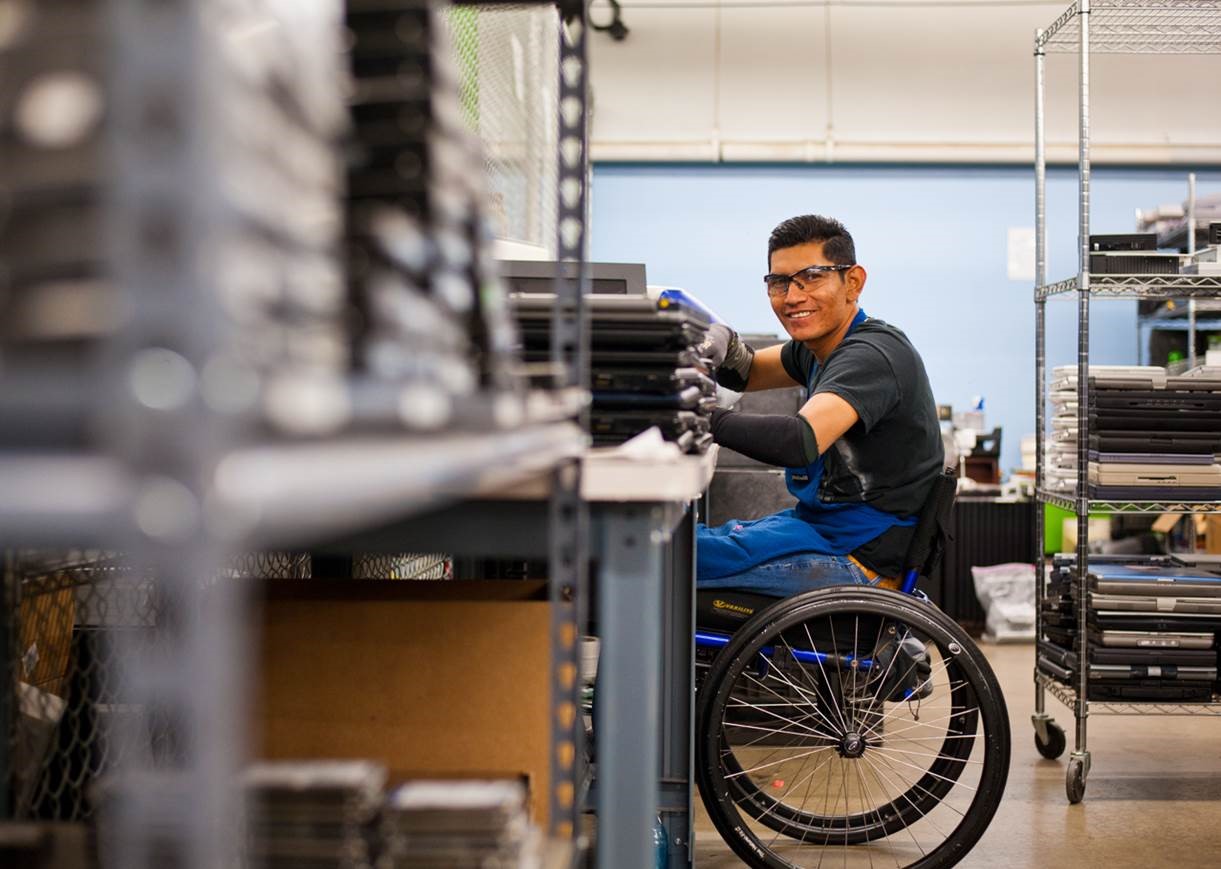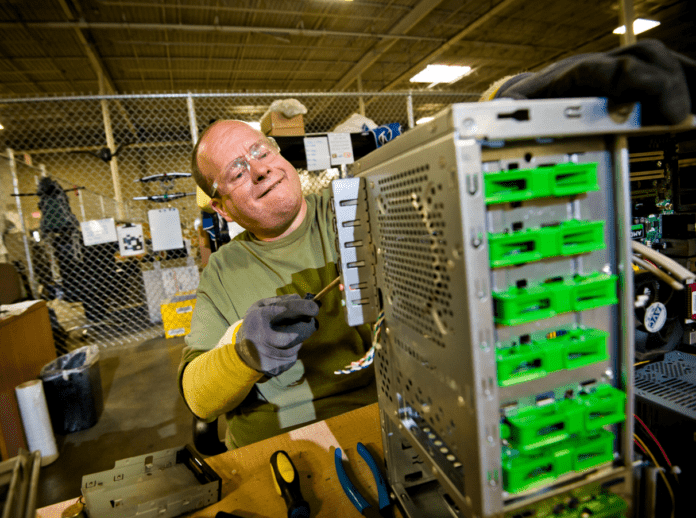Consumers recognize Goodwill as a trusted secondhand store. In fact, in 2017 alone, Goodwill received more than 105 million material donations. However, many are unaware of the impact made by giving to and/or shopping at the company’s 3,300 retail stores and online auction (ShopGoodwill.com). Since its founding in 1902, Goodwill has operated with the philosophy of “not charity but a chance,” specifically focused on influencing the workforce. Thanks to a federated network of 161 autonomous organizations, Goodwill is actually in the business of changing lives through job training, employment placement, career counseling, financial education and other related services. And, yes, that’s all attained as a result of contributions of used clothing and household items.
Each Goodwill organization is an independent nonprofit that activates according to local need. “The thing that unites the network, and is the core of what it means to be Goodwill, is a belief in the power of work,” says Brad Turner-Little, Senior Director of Mission Strategy and Workforce Development for Goodwill Industries International. “It enables people to be able to contribute to their communities, provide for themselves and their families and builds dignity at the individual level.”
How? Well, first, someone donates clothes (or other articles) which, as Turner-Little explains, allows Goodwill to serve as an environmentally-sustainable solution “by keeping over three billion pounds of stuff out of landfills on an annual basis.” Second, another person is granted a job to sort and sell bequeathed merchandise. Third, customers access and purchase affordable items. Forth, as noted in a company report, more than 87 percent of collective revenue from the sale of donated goods support and grow education and career services and other critical community-based programs.
In 2017, these career service programs granted 24,616 people employment at Goodwill, plus anadditional 110,505 people found opportunities at partnering companies in fields such as information technology, health care, automotive services, construction, hospitality, manufacturing, retail and so on. “Our local Goodwill’s often work in partnership with community colleges but, for somebody that might not have been very successful in a traditional learning environment and particularly someone that has been out of a learning environment for some time, Goodwill’s can provide an easier pathway into competency building to obtain the right skills and credentials,” Turner-Little describes, adding: “Because of our decades of experience helping people access and stay in jobs, we know how to help people build contingency plans and offer support services to mitigate anything that could hamper their success.”
Turner-Little says job training and placement approaches are individually customized to maximize opportunities for employment success. That’s been especially beneficial for people with disabilities, veterans and military families and job seekers with other unique circumstances. In fact, Goodwill reported to AmeriDisability Services that 23 percent of its employee population has a disability. For example: Sarah Pine, a single mother of three children who has a learning disability and is a recovering addict, enrolled in Goodwill’s Transitional Employment Opportunity and now works as assistant manager at the Springdale, Arkansas Goodwill store. And Steven Ikehara, a Honolulu, Hawaii resident who suffered a stroke, participated in Goodwill’s AbilityOne Program and works at the Corrosion Repair Facility on the Kaneohe Marine Corps Base. Likewise, Michael Stucke of Rockford, Illinois, who has autism, enrolled in Goodwill’s Supported Employment Program and landed a job at Wal-Mart.
“We have been a part of advocating for people with disabilities officially since the 1930s, and that commitment today is as strong as it’s ever been,” declares Turner-Little. For more information on donation sites, retail stores and job training services, visit Goodwill.org or call 1 (800) GOODWILL.







